I’ve spent countless hours learning about the best birdseed food for our feathered friends. I aim to share this knowledge with you so you can provide a nutritious diet for the birds that visit your yard.
Whether you’re a seasoned bird feeder or just starting, I’m confident this guide will help you make informed decisions.
Bird feeding isn’t as simple as it seems. Each species has unique dietary needs and preferences. That’s why variety is key when choosing bird seeds.
It’s not just about attracting more birds; it’s also about ensuring they get all the nutrients they need to thrive.
Several types of bird seed are available in the market today – each with its benefits and drawbacks.
In this article, I’ll discuss these options and recommend which ones offer the best nutritional value for your backyard visitors. So, let’s dive right in and find out which birdseed reigns supreme!
Understanding Bird Nutrition
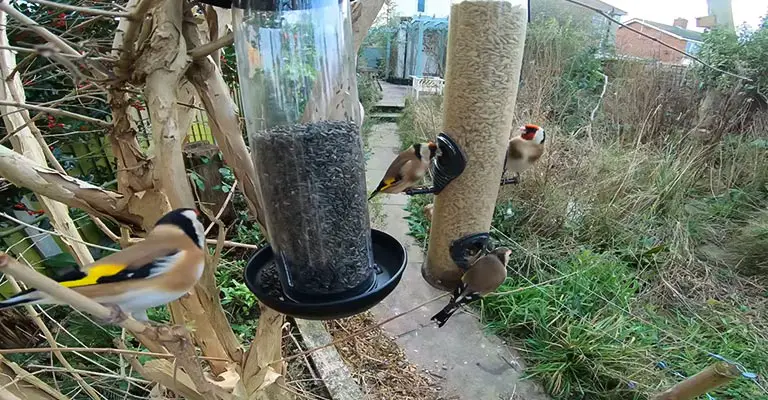
Before diving headfirst into bird seeds, it’s crucial to grasp the basics of bird nutrition. Birds, much like us humans, require a diverse diet to maintain optimal health.
A balanced avian diet typically comprises proteins, carbohydrates, fats, vitamins, and minerals.
To further break it down:
-
Proteins are critical for feather growth and overall body development. They’re usually obtained from insects, but certain seeds also provide this vital nutrient.
-
Carbohydrates serve as their primary energy source. Seeds and fruits are rich in these.
-
Fats are essential during cooler months as they help birds stay warm by providing extra calories.
-
Vitamins and minerals contribute to various bodily functions such as bone formation (calcium) and immune system support (Vitamin A).
Now that we’ve covered the fundamentals let’s delve deeper into why seeds play an important role in bird nutrition. Seeds are packed with nutrients, making them a staple food for many bird species. However, not all seeds are created equal.
Here’s a brief rundown of some popular bird seed types along with their nutritional value:
|
Seed Type |
Protein |
Fat |
Fiber |
|---|---|---|---|
|
Sunflower |
20% |
50% |
25% |
|
Millet |
11% |
4% |
10% |
|
Safflower |
16% |
38 % |
32 % |
Sunflower seeds excel in protein and fat content, making them ideal for cold climates, while millet is a low-fat but high-fiber option perfect for maintaining digestive health. On the other hand, safflower offers a decent balance between all three key nutrients.
Feeding only one type of seed can lead to nutritional imbalances over time, so it’s always best to offer a mixed seed blend or supplement with other foods where necessary.
In the next section, we’ll explore some of the best birdseed mixes that cater to various species and their individual dietary needs.
Top-Rated Bird Seed Brands
In bird feeding, selecting the right birdseed is paramount to attracting various birds and ensuring their health and happiness.
After extensive research and sampling, I’ve curated a list of top-rated birdseed brands that stand out for their quality, nutritional value, and ability to cater to different bird species. Here’s a closer look at these premier brands:
1. Kaytee
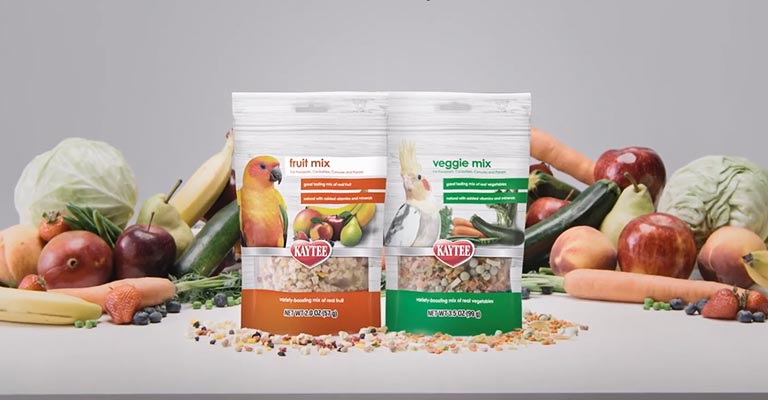
Over the years, Kaytee has built a stellar reputation as a staple in the bird-feeding community. Known for its diverse selection, this brand offers specialized blends to attract specific bird types, such as songbirds and finches.
Their commitment to quality ensures that each product is crafted to meet birds’ nutritional needs, making Kaytee a go-to choice for bird enthusiasts.
2. Wagner’s
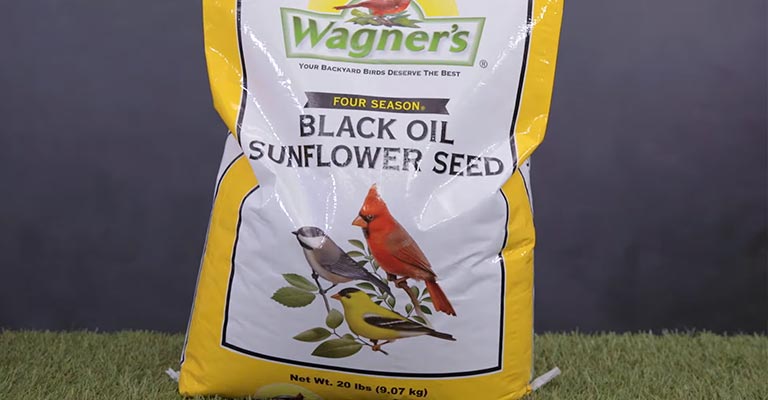
Praised for their dedication to purity and quality, Wagner offers birdseed without fillers. This means each bag is full of nutritious seeds that birds love, without any unnecessary additives.
The brand’s focus on high-quality seeds ensures that your feathered visitors receive the best nutrition.
3. Lyric Wild Bird Food
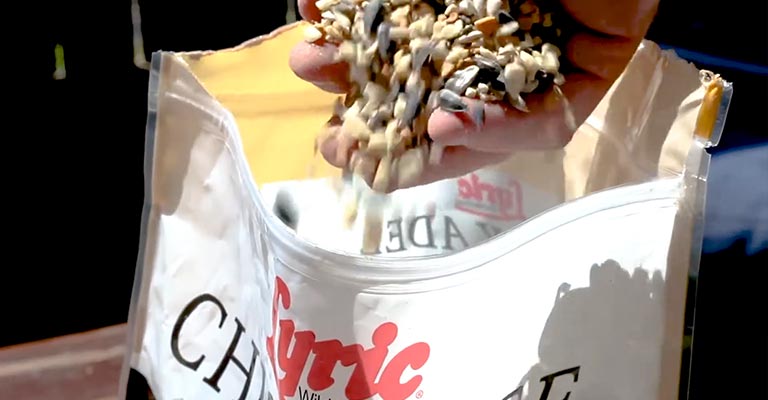
Lyric Wild Bird Food is synonymous with gourmet bird feeding. This brand takes pride in its premium blends, incorporating only the finest ingredients like shelled peanuts, sunflower kernels, and dried fruits.
Lyric’s commitment to excellence ensures that every meal is healthy and exceptionally tasty for your avian friends.
4. Audubon Park

For those who prefer all-natural options, Audubon Park is a perfect choice. This brand offers bird food free from artificial colors and flavors, focusing instead on the natural goodness that promotes better bird health.
Their products are a testament to the brand’s commitment to the well-being of birds and the environment.
5. Wild Delight
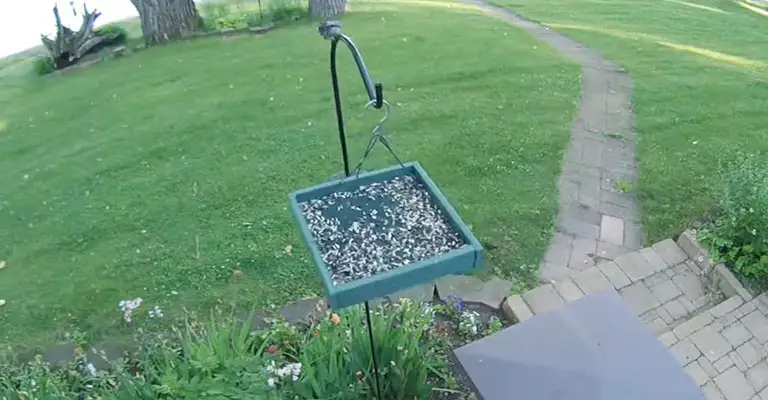
Wild Delight is renowned for its advanced formula bird seeds, fortified with added vitamins and minerals essential for a balanced avian diet.
This brand goes the extra mile to ensure that its products attract various birds and contribute to their overall health and vitality.
Here’s a quick look at these top-rated brands:
|
Brand |
Specialty |
|---|---|
|
Kaytee |
Wide variety of blends |
|
Wagner’s |
High-quality seeds without fillers |
|
Lyric |
Gourmet blends |
|
Audubon Park |
All-natural bird food |
|
Wild Delight |
Added vitamins & minerals |
Choosing the Right Bird Seeds for Your Feathered Friends

When feeding your feathered friends, I’m here to help you make an informed decision. There’s no one-size-fits-all seed mix, as different bird species have varied dietary needs.
Understanding your birds’ preferences and nutritional requirements is key in choosing the right feed.
Sunflower seeds are a bird favorite and can attract various species, including finches, cardinals, chickadees, and nuthatches. They’re packed with healthy fats that provide energy, especially during cold winters.
On the flip side, they might not be suitable for all types of birds due to their large size. So, sunflower seeds could be a staple or used sparingly, depending on what birds you’re catering to.
Peanuts are also an excellent choice as they offer high-energy content. They’re loved by woodpeckers, jays, and even squirrels!
If you’d rather keep squirrels away, safflower seeds might do the trick since these critters aren’t fans of them, but many birds, like doves and sparrows, are!
Nyjer or thistle seeds are another great option, particularly if finches visit your yard frequently – they adore this feed! Remember that nyjer seeds require special feeders due to their small size.
Remember:
-
Sunflower seeds: All-round crowd pleaser
-
Peanuts: High-energy snack (watch out for squirrels!)
-
Safflower seeds: Not squirrel-friendly
-
Nyjer/Thistle seed: Finch’s favorite
Lastly, let’s talk about millet, often found in mixed birdseed packs. It’s best served on ground feeders since ground-feeding birds like sparrows and juncos prefer it, while perch-feeders usually ignore it.
In summary, every type of bird seed has its purpose and can attract different kinds of birds. Awareness of what you’re looking to achieve – attracting a variety of species or targeting specific ones –
will guide your bird seed choice. So, next time you’re stocking up, consider the needs and preferences of your feathered friends!
The Impact of Quality Bird Food on Birds’ Health
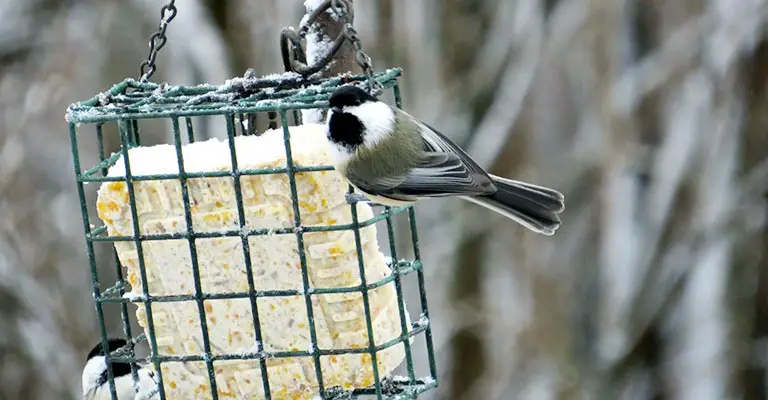
What we feed our feathered friends can greatly influence their overall health and longevity. It’s all about the quality, not quantity, of bird food. And here’s why.
Quality bird food is packed with essential nutrients that birds need to thrive. These nutrients are often found in premium seeds such as sunflower, millet, and peanuts.
For instance, sunflower seeds are rich in healthy fats and protein, which help maintain a bird’s energy levels throughout the day.
On the other hand, millets provide vital minerals like magnesium and phosphorous that contribute to bone health.
Without access to these key nutrients from high-quality food sources, birds may suffer from various nutritional deficiencies, leading to poor health conditions like weak feathers or low immunity against diseases.
Let’s take a closer look at some statistics:
|
Quality Bird Food |
Benefits |
|---|---|
|
Sunflower Seeds |
Rich in healthy fats and proteins |
|
Millet |
Provides vital minerals i.e., Magnesium & Phosphorous |
But it doesn’t stop at just providing quality seed mixtures. Variety is another essential element for a balanced diet in birds.
Offering various seeds encourages natural feeding behavior while ensuring they get different nutrients.
-
Don’t stick with one type of seed.
-
Mix up your offerings regularly.
-
Consider adding fresh fruits and vegetables into the mix.
Every species has unique dietary needs based on size, metabolism rate, and natural habitat. By understanding these factors, you can provide the best nutrition for your feathered friend, ensuring optimal health and happiness!
Finally, yet importantly, avoid cheap filler ingredients commonly found in low-quality bird feeds – such as corn or soybeans, which offer little nutritional value but are added merely to increase the weight or bulk volume of the feed package.
So next time you pick up a bag of birdseed for your backyard visitors, check the ingredients list. Providing quality bird food isn’t just about returning birds to your feeders, it’s about contributing to their overall wellbeing!
Concluding Thoughts on Selecting the Best Bird Seeds
I’ve extensively explored the world of bird seeds in this article, and I’m confident you’re now equipped with the knowledge needed to make an informed decision.
Selecting the best seed mix isn’t a one-size-fits-all solution. It’s vital to consider your feathered friend’s species, dietary needs, and personal preferences.
Several popular birdseed brands stand out due to their high-quality ingredients and impressive customer reviews:
-
Wagner’s Greatest Variety Blend
-
Kaytee Supreme Bird Food
-
Lyric 2647413 Fruit & Nut High Energy Wild Bird Mix
However, remember that even within these top-tier options, what works for one bird may not work for another. Therefore, finding the perfect mix might take some trial and error.
It’s also essential to consider feeding habits when choosing bird seeds. Some birds prefer eating from feeders, while others prefer foraging from the ground or table surfaces.
If your birds are picky eaters, you might need to experiment with different feeder styles alongside varying your seed offerings.
Lastly, high-quality seeds can sometimes carry a higher price tag, but don’t let cost alone guide your decision.
Cheaper blends often contain filler seeds, which most birds tend to discard anyway. So, investing in pricier premium mixes could deliver better value over time.
To wrap up, consider your bird’s species-specific needs, try various quality brands, observe feeding habits, be patient with picky eaters, and prioritize quality over cost.
With these tips in my guidebook, I’m sure you’ll soon find yourself a winner in the quest for the best bird seeds!